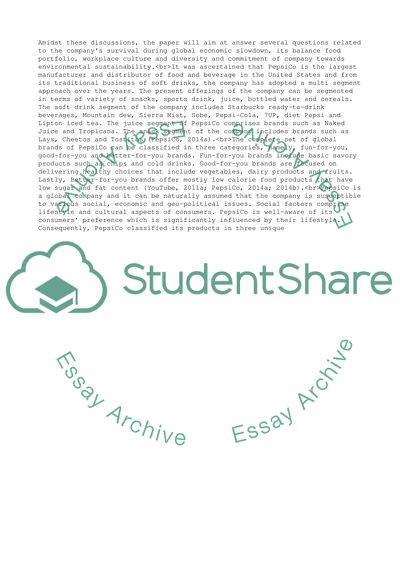Cite this document
(“PepsiCo Case Study Example | Topics and Well Written Essays - 2000 words”, n.d.)
Retrieved from https://studentshare.org/management/1664968-pepsico-case-study
Retrieved from https://studentshare.org/management/1664968-pepsico-case-study
(PepsiCo Case Study Example | Topics and Well Written Essays - 2000 Words)
https://studentshare.org/management/1664968-pepsico-case-study.
https://studentshare.org/management/1664968-pepsico-case-study.
“PepsiCo Case Study Example | Topics and Well Written Essays - 2000 Words”, n.d. https://studentshare.org/management/1664968-pepsico-case-study.


